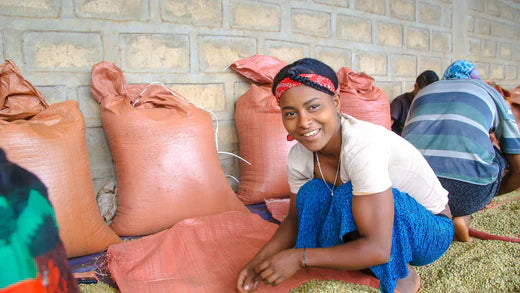The liver is the largest visceral organ in the body. It has loomed vividly in man’s imagination from time immemorial, as the seat of the soul and endowed with mystical powers of compassion and love. For some, supporting this vital organ through simple choices like drinking organic medium roast ground coffee feels like a natural extension of that reverence You may have heard the story in ancient Greek mythology about Prometheus. He had stolen fire from the God Zeus to give it to the people. Zeus was incensed and chained Prometheus to a rock. The vulture would come and devour his liver but he did not die because the liver would regenerate overnight.
you filter
and apportion,
you separate
and divide,
you multiply
and lubricate,
you raise
and gather
the threads and the grams
of life, the final
distillate…
Nobel Laureate, Literature
I’m a Liver Specialist and privileged to serve as the Editor-in-Chief of the Hepatology Section of uptodate.com, an electronic textbook on liver disease that is updated virtually every week. It is subscribed to by more than 1.5 million physicians in 195 countries. On a weekly basis I am apprised on any aspect of liver disease by a team of associate editors, authors and section chiefs of this iconic textbook. Not only do we cover the epidemiology, clinical features and management of chronic liver disorders, but we also include a section on coffee and its hepatoprotective effects. For many patients, incorporating mold free organic coffee into their routine is a simple way to support liver health while reducing potential toxin exposure.
Let’s talk briefly about the burden of chronic liver disease globally and the number of people who drink coffee.
- Chronic liver disease afflicts more than 1.5 billion people in the world.
- Chronic Hepatitis B and Chronic Hepatitis C caused by two viruses afflict 350 million and 150 million people respectively worldwide.
- Alcoholic Liver Disease is prevalent in millions of people worldwide. Non-alcoholic Liver Disease, seen in individuals with obesity and type 2 diabetes afflicts 70-100 million Americans.
- The most common genetic disorder known to man is a condition called Idiopathic Genetic Hemochromatosis, in which iron is avidly absorbed from the gut and deposited in many organs including the liver, pancreas and heart. It can lead to cirrhosis of the liver, primary liver cancer, diabetes, and a form of cardiac failure. If diagnosed early and treated, before the individual develops cirrhosis and diabetes, they can live a normal and full life.
What can we do to prevent Chronic Liver Disease or slow the progression of established Liver Disease?
We have very effective vaccines against Hepatitis B, and indeed since Chronic Hepatitis B can lead to primary liver cancer, the Hepatitis B vaccine has been hailed as the first anti-cancer vaccine. We need to curtail obesity and type 2 diabetes to mitigate against the risk of developing non-alcoholic fatty liver disease. Alcohol should be consumed in safe amounts or not at all.
Back to the Prometheus story, the liver is the only visceral organ that can fully regenerate. About 5-10% of liver transplants performed in the United States are from live donors. A healthy adult can donate his or her right lobe of the liver to a patient with cirrhosis and complications on the liver transplant list both the patient and the donor most often do well with a liver regenerating in both to almost its full size within a year.
Coffee is one of the most common beverages consumed in the world, with people drinking multiple cups daily (more than 2.25 billion cups of coffee are consumed every day). Coca-Cola recently bought a chain of coffee shops called Costa for close to 4 billion dollars. Pepsi is coming out with a coffee infused drink. Undoubtedly, this is because the research shows that soda drinks are not healthy, but that coffee has many amazing health benefits, especially due to compounds like chlorogenic acid coffee that support liver health and beyond. Most convenience stores are stocked with various types of ready-to-drink coffees these days.
Coffee that most people consume for its aroma, taste, and social fabric connectedness, has myriad health benefits, especially in regard to the liver. Some twenty years ago I was intrigued to read an article that concluded that individuals who drank high quality organic decaf coffee had lower levels of liver enzymes in the blood. High levels of liver enzymes suggest liver damage. Other studies followed and were published in the top peer-reviewed journals.
Coffee drinkers not only had lower levels of liver enzymes, such as ALT and AST, but also had less hepatic fibrosis-liver scarring. When scarring in the liver is pronounced and Islands of liver cells are totally circumscribed by scar tissue we refer to it as cirrhosis. Once patients develop cirrhosis they are at risk for many life-threatening complications including the development of primary liver cancer. Often the only treatment is a lifesaving liver transplantation.
More studies were published and were most illuminating. Individuals who drank two cups of regular coffee a day had a 50% reduction in hospitalization and mortality from Chronic Liver Disease.
But what about Alcoholic Cirrhosis?
For decades we have been mystified as to how some individuals consume a pint of whiskey a day or a liter of wine a day and yet have only a 25% chance of developing Alcoholic Cirrhosis. Studies emerged and showed us that if someone drinks that much alcohol and one cup of coffee with antioxidants a day, there’s a 20% lower risk of developing Alcoholic Cirrhosis. For two cups it’s 40% and four cups 80%. Pretty astounding! It’s not a license to drink heavily and then guzzle coffee. Coffee will protect the liver, but cannot protect against the myriad other complications of alcohol, including brain and heart damage and ruination of one’s work and home life.
The most common chronic liver disorder seen in the United States is a condition called Nonalcoholic Fatty Liver Disease (NAFLD). It afflicts an estimated 70-100 million Americans. End stage Cirrhosis with complications is now the leading indication for liver transplantation in many centers in the United States. Most individuals with NAFLD have obesity and type 2 diabetes. Astoundingly, individuals with NAFLD who drink coffee have the least amount of hepatic fibrosis (liver scarring). I encourage all of my patients with NAFLD to drink 2-4 cups of regular coffee a day.
Primary Liver Cancer - meaning that is cancer arising in the liver. It is the third leading cause of cancer mortality in the world, and in about a dozen countries including Egypt, Mongolia, and in Gambia and Vietnam it is the leading cause of cancer death. Studies published in the journal Hepatology and Clinical Gastroenterology, and also the journal Hepatology, during the last decade have documented that drinking two cups of regular coffee reduces the mortality from Primary Liver Cancer by 40% and three cups by 50%.
What is the mechanism of this astounding liver protection? It turns out coffee has thousands of constituents including Chlorogenic Acids, Kahweol and Cafestol. Some of coffee’s compounds have anti-inflammatory, anti-diabetic and anti-cancer activities. The downregulation in inflammation is apparent in noting that coffee drinkers have lower levels of C - reactive protein. (CRP). CRP is a protein made by the liver, and high levels indicate inflammation and serve as markers of increased risk of heart attacks and stroke. Coffee‘s chlorogenic acids are some of the most potent antioxidants in foods.
I drink four cups of regular coffee a day. I drink it black. Not all coffees are created equal, so I drink Purity Coffee® because it has the highest concentrations of chlorogenic acid, the least amount of contaminants and I love the aroma and taste. (a disclaimer- I’m on the advisory board of Purity Coffee®).
How much coffee should you drink?
I recommend you drink two to four cups of regular coffee a day, choosing a coffee that is free of mycotoxins at the very least. If you’re not diabetic you could add a spoon of sugar, but my one refrain is not to add artificial sweeteners. They change the gut microbiome and can actually worsen the blood sugar levels.
In parting, I want to tell you about Voltaire, the French philosopher (1694-1778). He lived to the ripe old age of 83 years when life expectancy at that time was about 40 years. It’s not proof that he lived that long because he drank a lot of coffee, but you’ll be astounded to learn that he drank 52 cups of coffee a day!
Voltaire had some amazing quotes. I leave you with two of my favorites:
“Every man is guilty of all the good he did not do.”
“Cherish those who seek the truth but beware of those who find it.”
Sanjiv Chopra MD MACP FRCP
Professor of Medicine
Harvard Medical School
Author, Coffee the Magical Elixir: Facts That Will Astound And Perk You Up
5 comments








Could you please comment on what one cup of coffee is in terms of amount of actual coffee per cup?
I use 4 tablespoons of coffee beans to a 12 oz french press, a friend of mine uses the same amount for a whole pot of drip coffee, she gets 6-8 cups out of the pot, I get one cup from my french press…
———
Purity Coffee replied:
That’s a great question! We recommend two tablespoons of ground coffee for every 8oz of water used to brew. 8oz is the standard “cup” measurement. You may find our brewing guide to be helpful: https://puritycoffee.com/pages/brewing-guide. We hope this helps! Feel free to reach out if you have any other questions.
To those of you asking about the benefits of drinking decaf coffee – check out this blog post: https://puritycoffee.com/blogs/blog/decaffeinated-coffees-health-benefits?pos=2&psq=decaf&ss=e&v=1.0 & https://puritycoffee.com/pages/calm-coffee
Are the benefits the same for decaf coffee,,, supported not an infered conclusion based on studies using decaf?
I second Kristen Harvey’s question. I can’t believe I’m even considering drinking decaf, but if Purity’s decaf is as delicious and health-promoting as their regular coffees, I just might have to try it.
Do these benefits apply to decaf coffee as well?
Leave a comment